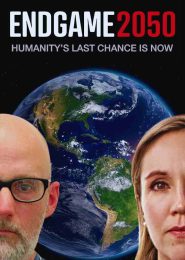The Plastic Problem (2019)
The Plastic Problem, a PBS NewsHour documentary, casts a stark spotlight on the pervasive material that has infiltrated every corner of our lives: plastic. Directed by DangerTV, this eye-opening film confronts the environmental crisis that has been brewing for nearly seven decades. By 2050, there will be more plastic in our oceans than fish—a sobering reality that demands urgent attention.
Here’s a glimpse into the heart of this compelling documentary:
- Ubiquitous Material: Plastic, once hailed as a modern marvel, now haunts our planet. It wraps our groceries, fills our landfills, and floats in our seas. But its convenience comes at a cost—a cost we can no longer afford to ignore.
- Impact on the World: The film explores how plastic impacts our ecosystems, wildlife, and human health. From microplastics infiltrating marine food chains to plastic pollution choking our waterways, the consequences are dire.
- The Great Pacific Garbage Patch: We journey to the infamous Great Pacific Garbage Patch—a swirling mass of plastic debris twice the size of Texas. Here, plastic bottles, bags, and fragments converge, creating a dystopian landscape.
- Single-Use Plastics: The documentary dissects our addiction to single-use plastics. Straws, cups, and packaging—convenient for a moment, devastating for eternity. We witness the toll on marine creatures entangled in discarded nets and bags.
- Innovations and Solutions: Amid the crisis, innovators emerge. Scientists, activists, and entrepreneurs seek alternatives. Biodegradable plastics, ocean cleanup initiatives, and circular economy models offer glimmers of hope.
- Consumer Choices: The film challenges us to rethink our plastic habits. Can we break free from disposable culture? Can we choose reusable over throwaway? Our choices ripple through the plastic web.
- Global Responsibility: The Plastic Problem transcends borders. It’s a shared responsibility—one that governments, industries, and individuals must shoulder. Bans on single-use plastics, recycling infrastructure, and education are vital.
In this urgent narrative, we grapple with our plastic addiction. We witness the paradox: a material designed for permanence now suffocates our planet. But within this crisis lies opportunity—the chance to rewrite our story, one less plastic bottle at a time.
As the waves lap against plastic shores, we must act. Let’s turn the tide, reclaim our oceans, and ensure that future generations inherit a world where fish outnumber plastic fragments.




